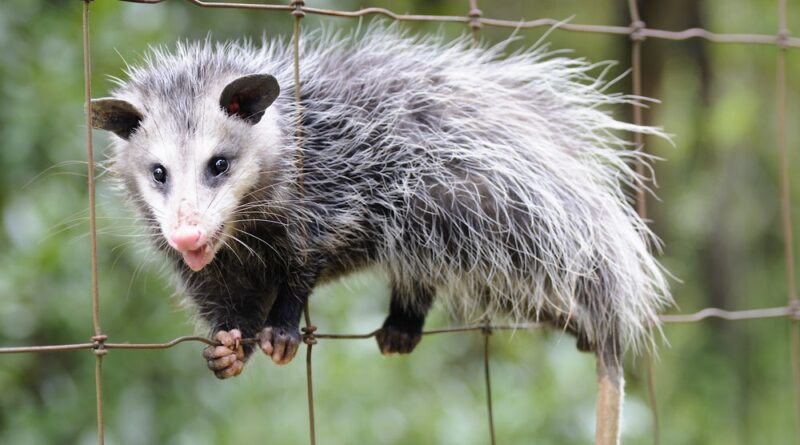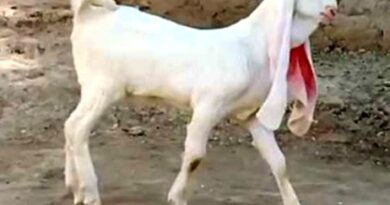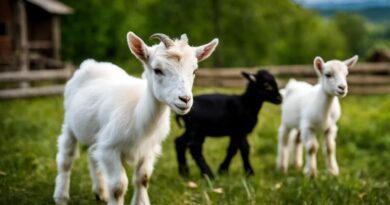Do Possums Eat Chickens? Everything You Need to Know About Possum Behavior and Chicken Safety
Possums, often misunderstood creatures, are known for their unique appearance and nocturnal habits. For chicken owners, the mere sight of a possum can spark worry and concern. Do possums eat chickens? Can they harm your flock? To answer these questions and ensure the safety of your chickens, it’s essential to delve deep into possum behavior, their diet, and how to protect your coop from potential threats. This comprehensive guide will shed light on these matters and provide actionable tips for safeguarding your chickens.
Understanding Possum Behavior
What Are Possums?
Possums, also known as opossums in North America, are marsupials primarily found in the Americas. They are nocturnal and are well-known for their ability to “play dead” when threatened. These small mammals are highly adaptable, often residing near human settlements due to the availability of food.
Are Possums Aggressive?
Despite their intimidating hiss and sharp teeth, possums are generally non-aggressive creatures. They are opportunistic feeders and scavengers, which means they are more likely to raid trash cans or feast on leftovers rather than hunt actively. However, when cornered or threatened, possums might defend themselves.
Why Do Possums Visit Chicken Coops?
Possums are drawn to chicken coops primarily because of the food sources they offer. A coop often contains more than just chickens—it has leftover feed, water, eggs, and even small rodents. These attractants make coops a potential buffet for hungry possums.
Possum Diet: What Do They Eat?
Natural Diet of Possums
Possums are omnivores, meaning they eat both plant and animal matter. Their diet in the wild typically includes:
- Fruits and berries
- Insects
- Small mammals
- Carrion (dead animals)
- Birds’ eggs
- Reptiles and amphibians
Do Possums Eat Chickens?
Possums do not naturally hunt chickens as a primary food source. However, they are opportunistic feeders. If they come across a vulnerable chicken—especially chicks or injured birds—they may attack. Eggs are also a tempting treat for possums, as they are rich in nutrients and easy to access if not properly secured.
Factors Influencing Possum Behavior Toward Chickens
- Hunger Levels: A starving possum is more likely to attack chickens or their eggs.
- Easy Access: Coops that are poorly secured make it easier for possums to enter and feed.
Lack of Alternative Food Sources: If natural food sources like fruits or insects are scarce, possums may turn to chicken coops.
Signs of a Possum Attack
If a possum has entered your coop, it’s crucial to identify the signs early to prevent further losses. Here are some indicators:
- Missing Eggs: Possums are notorious for raiding nests and stealing eggs.
Injured or Dead Chickens: Possums usually target smaller or weaker chickens. Bite marks around the neck or head are common. - Droppings: Possum droppings near the coop are a clear sign of their presence.
- Disturbed Feed: If your chicken feed has been tampered with, it could indicate a possum visit.
How to Protect Your Chickens From Possums
Securing the Coop
The first step in protecting your flock is to fortify the coop. Possums are excellent climbers and can squeeze through small openings. Here’s how to secure your coop:
- Install Strong Mesh: Use hardware cloth with small gaps to cover all openings.
- Lock Doors and Windows: Ensure that doors and windows are locked at night with predator-proof latches.
- Seal Gaps: Inspect the coop for any cracks or holes and seal them with durable materials.
Predator Deterrents
Using deterrents can discourage possums from approaching your coop. Effective options include:
- Motion-Activated Lights: Sudden lights can startle possums and keep them away.
- Predator Scents: Sprinkling predator urine around the coop can deter possums.
- Electronic Devices: Devices that emit ultrasonic sounds can also repel possums.
Managing Attractants
Possums are drawn to coops due to food and shelter. Reducing attractants can make your coop less appealing:
- Clean Spilled Feed: Sweep up any chicken feed that falls to the ground.
- Remove Trash: Dispose of food scraps and trash properly to avoid attracting possums.
- Secure Eggs: Collect eggs daily to prevent them from becoming an easy meal.
Coexisting With Possums: A Balanced Approach
While possums can pose a threat to chickens, they also play a vital role in the ecosystem. They help control pests like ticks, rodents, and insects. Instead of viewing possums solely as predators, it’s worth understanding their ecological importance and finding ways to coexist peacefully.
Providing Alternative Food Sources
One way to discourage possums from targeting your coop is by providing alternative food sources away from the coop, such as:
A small compost pile with fruits and vegetables.
A bird feeder placed at a safe distance.
Encouraging Natural Predators
Possums have natural predators, including owls and foxes. Encouraging these predators to thrive in your area can help maintain balance without posing a significant threat to your chickens.
What to Do If You Spot a Possum Near Your Coop
Remain Calm
If you see a possum near your coop, avoid panicking. Remember, possums are usually more interested in food scraps or rodents than your chickens.
Safely Relocate the Possum
If the possum becomes a recurring problem, consider trapping it humanely and relocating it far from your property. Always check local regulations before attempting to trap wildlife.
Seek Professional Help
For persistent possum issues, contacting a wildlife professional can ensure the problem is handled safely and effectively.
Myths and Misconceptions About Possums and Chickens
Myth: Possums Always Kill Chickens
Fact: Possums rarely kill chickens unless they are desperate for food. They are more likely to eat eggs or scavenge on already-dead chickens.
Myth: Possums Are Pests With No Benefits
Fact: Possums are beneficial animals that help control pests like ticks and small rodents.
Myth: All Possums Carry Diseases
Fact: While possums can carry diseases like leptospirosis, the risk of transmission is low compared to other animals like rodents.
Final Thoughts: Ensuring Chicken Safety and Coexisting With Possums
Possums are not the bloodthirsty predators they are often made out to be. While they may pose a threat to chickens in certain circumstances, they are usually more interested in scavenging for food. By taking proactive steps to secure your coop, managing attractants, and understanding possum behavior, you can protect your flock effectively.
At the same time, it’s important to appreciate the role possums play in the ecosystem. Striking a balance between chicken safety and wildlife preservation is key to creating a harmonious environment. With the right measures in place, you can keep your chickens safe while coexisting peacefully with these fascinating creatures




